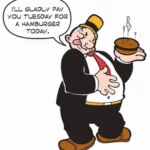
by Steve Haner
Whether customers pay a lot more for one year starting this July, or just a little bit more for ten years starting next winter, Dominion Energy Virginia’s entire backlog of accumulated fuel costs from prior years will be paid in full. Every dollar will come from customers, with annual interest tacked on in the case of the long-term approach.
The second approach, the “put it on the credit card and pay the minimum” approach, is not bill relief. Paying less now in order to pay more for ten years is not bill relief. It is bad enough that a major newspaper is helping to sell the con. The story was then shared on Twitter as an example of “Republican-led utility reform,” and Democrats are likely to seek to claim credit, as well.
This proposal is nothing to be proud of. The Tweet underlines the main point of this maneuver, which is to give voters the impression electricity costs are going down just before the November 2023 elections for the entire General Assembly.
Energy policy should not be made based on what expedient saves the politicians and utilities from angry voters in the next election. All the coming campaign brochures and radio ads claiming that legislators provided “bill relief” are nonsense when several billion dollars in debt is intentionally not being collected. Of course, a similar pattern with other consumer debt would indicate people love that approach. The federal government has perfected the technique.
Dominion started down this road with legislation in the 2023 session, previously reported. The fuel costs are collected on bills under Rider A using a calendar year running from July to July, so on May 1 Dominion filed its application to adjust the rider for the rate year beginning in two months. Fuel cases before the State Corporation Commission are usually boring, but this is the second in a row wrestling over how to pass along all the uncollected prior costs.
Dominion’s proposal is to simply stop doing so for at least six months, i.e. ignore the debt for a while. As of July 1, it wants to abandon the plan it sold to the SCC less than a year ago, spreading out over three years the uncollected costs from the 2021 fuel rate year. Customers are currently paying down that first phase in the current fuel surcharge of 3.5379 cents per kilowatt hour ($35.38 on a 1,000-kWh bill.)
As of July 1, two-thirds of those 2021 uncollected fuel costs will still be outstanding. The fuel charge for the year ending in 2022 was also inadequate, so the fuel debt is even higher than last year’s total. How much of that uncollected debt does Dominion want to collect in the new Rider A rate set on July 1? None of it. Dominion proposes to suspend collection of any arrearage until (a coincidence?) after the November elections.
For at least six months, the debt will sit uncollected and continue to accrue interest. It is that six-month payment “holiday” that makes the claimed “bill relief” seem so dramatic.
Then the holiday ends.
In early 2024, as the new legislators are settling into the new General Assembly building, Dominion wants to convert all that debt into a bond and impose the bond costs on customers for 120 months. In the application (the public version, at least) the underlying interest assumptions are absent. Dominion blandly claims the approach will prove beneficial to customers on a net-present-value basis.
The major spike in energy prices over the past two years, blamed in large part on Russia’s attack on Ukraine and the Western sanctions that followed, has abated. The winter that just ended was warmer than normal and fuel demand was reduced. Natural gas prices in particular have gone back to earlier levels. If the past debt is ignored, Dominion’s actual fuel cost for the year starting July 1 are lower than last year.
As mentioned before, the current fuel charge is $35.38 for 1,000 kWh (for all customer classes). If the SCC orders Dominion to continue the three-year collection schedule on the 2021 debt, and roll in the new 2022 debt, that charge would go to $43.30 for the following 12 months, until June 2024. If Dominion has its way, it drops to $28.59 for six months, then jumps to $31.09 cents when the bond payments start.
The bond payments of $2.50 per month per 1,000 kWh added to monthly bills would continue for ten years. Because of the interest, the cumulative cost over ten years would be more than the cost of paying off the debt over one year, or on a three-year schedule.
Here’s the elephant in the room: there is no reason to believe that the past two years were outliers. Similar volatility in fuel prices, natural gas and uranium for reactors, could easily become the rule not the exception. The fuel charge also pays for electricity Dominion buys from other utilities, a cost which is equally volatile and driven by fuel prices.
This approach of bonding the debt and paying it off over a decade or longer could also become the rule and not the exception. The SCC should say no, Virginia should not go down that road.
First published this morning by the Thomas Jefferson Institute for Public Policy.

Leave a Reply
You must be logged in to post a comment.